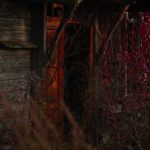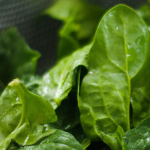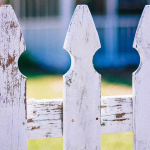My girl Orla and I have made a pact to get sober. As a final blow-out we’ve booked into a chalet on the river for two nights on some-one else’s credit card.
In the bedroom, I flop backwards onto the kingsize bed and turn on the radio channel. Neil Young’s Harvest Moon is playing and suddenly everything seems possible. I reach forward and take a can of beer from one of the bags.
For the remainder of the afternoon the radio plays in the background as we drink.
Later that evening we get ready to go out. We’ve booked a table at the restaurant in the hotel; it’s only a five-minute walk from our chalet.
I make an effort, and it’s a long time since I’ve made an effort with anything. I don’t shave, but I shower, and I dress in a red shirt, with clean trousers I wore once at a funeral. When I come out of the bathroom Orla is ready. She wears purple lipstick, and a black skater dress that runs to just above her knees.
“How do I look?” she says.
“Beautiful,” I say. “You look beautiful.”
She’s lost weight, too much weight, there are bruises on the pale skin of her legs, and the dress is a little too big for her, but she is beautiful.
Hand-in-hand we walk along the side of the slow dark water and up to the hotel for dinner. Dressed as we are, we look like we belong. We look like normal people, not outsiders.
The waiter is a man in his sixties. He’s slow and precise in everything he does. And he’s considerate; he pulls out the chair for Orla and she thanks him as she sits at the table. We don’t order starters. The waiter recommends the sea bass. He calls me, Sir. I order it. Orla orders a vegetarian pasta dish.
Neither of us is as hungry as we thought.
With our meal, we have three bottles of white wine. When we get the bill the wine costs forty quid a bottle. I have no cash to tip the waiter. I ask if he can put a twenty percent tip for himself on the credit card. He nods and wishes us a pleasant evening.
The next afternoon we talk about spending some time in the health spa, it’s free with the booking. Orla wants to try the pool, maybe lie in the sauna. I want to try the Jacuzzi. But we don’t go to the health spa; we get a carryout: vodka and beer, and a single bottle of champagne.
In the bedroom we drink and then we talk. Orla turns off the radio. She tells me she can’t take it anymore; she’s afraid to answer the door, take a phone call, open the mail. I have to stop the drinking. She has to quit the heroin. It’s now beyond the point of dangerous, beyond the point of fun.
I agree with her totally. I tell her that’s why we’re here for two days maxing out a stolen credit card.
While we talk there’s a rap on the door. I answer it but no one’s there. I step outside but it’s so dark and moonless I can’t see a thing. Further along, upriver, I can see some light reflected off the slack water, but there’s definitely no one there.
“Who was it?” she asks.
“The grim reaper.”
“Don’t say that. Please don’t say that now.”
“It was no one honey, just the wind.”
I sit down again and pour myself a large vodka and coke. As I sit sipping my drink I hear two light thumps, one after the other.
Orla walks over, kisses me on the cheek and places her head on my shoulder.
“Is this real or is it just our messed up heads?” she asks.
“It’s just the wind, that’s all.”
She has brought H. That’s her drug. She goes to her bag and prepares to shoot up for the final time.
I open the bottle of champagne and we toast our future, drinking from small white teacups.
After shooting up she falls asleep. She always does this now, straight after.
I sit watching her and I feel like the room’s shrinking. In my bare feet, I walk the length of the bedroom on the soft carpet, to the cold dark tiles of the kitchen and back again through the light of the bedroom to the patio door. I do this three times, from the light to the darkness, and back again.
This is to be my last drink — then a life forever without it.
I sit on the edge of the bed, just below Orla’s black-painted toenails. While I sit there I hear that same thumping noise. It’s hard to explain what it sounds like; it’s not like someone rapping, it’s much duller and flatter than that.
I turn my head sideways and call my girl’s name but she’s asleep. Unsteadily, I get up, stand over her, move the hair from her face and kiss her on the cheek.
I look again at her, and place two fingertips on her neck at the carotid artery. There’s no pulse. She’s cold. And I know with complete certainty she’s dead.
For a long time, I lie beside her — spooning — and for some reason her death doesn’t come as a shock.
And then I hear that same thudding.
Slowly, I stand up, listening. The noise is coming from the patio doors.
I open them but there’s no one there. So I close the glass door tight, go back inside, get Orla’s mobile phone and turn on the torch.
At the bottom of the door there are frogs throwing themselves at the glass. They do it like they’re trying to jump through something. They’ve been doing this the whole time we sat talking, the whole time she lay dead.
…
Biography
Peter Jordan lives in Belfast. His debut flash collection, White goods, has just been released by KUP. Included in this collection are last year’s Bare Fiction winner, Broody, the Fish Flash second-placed story, Luna, and, In Magazines, which was shortlisted for the Bridport Flash. You will find him on twitter @pm_jordan.
Image: Michael Mroczek





